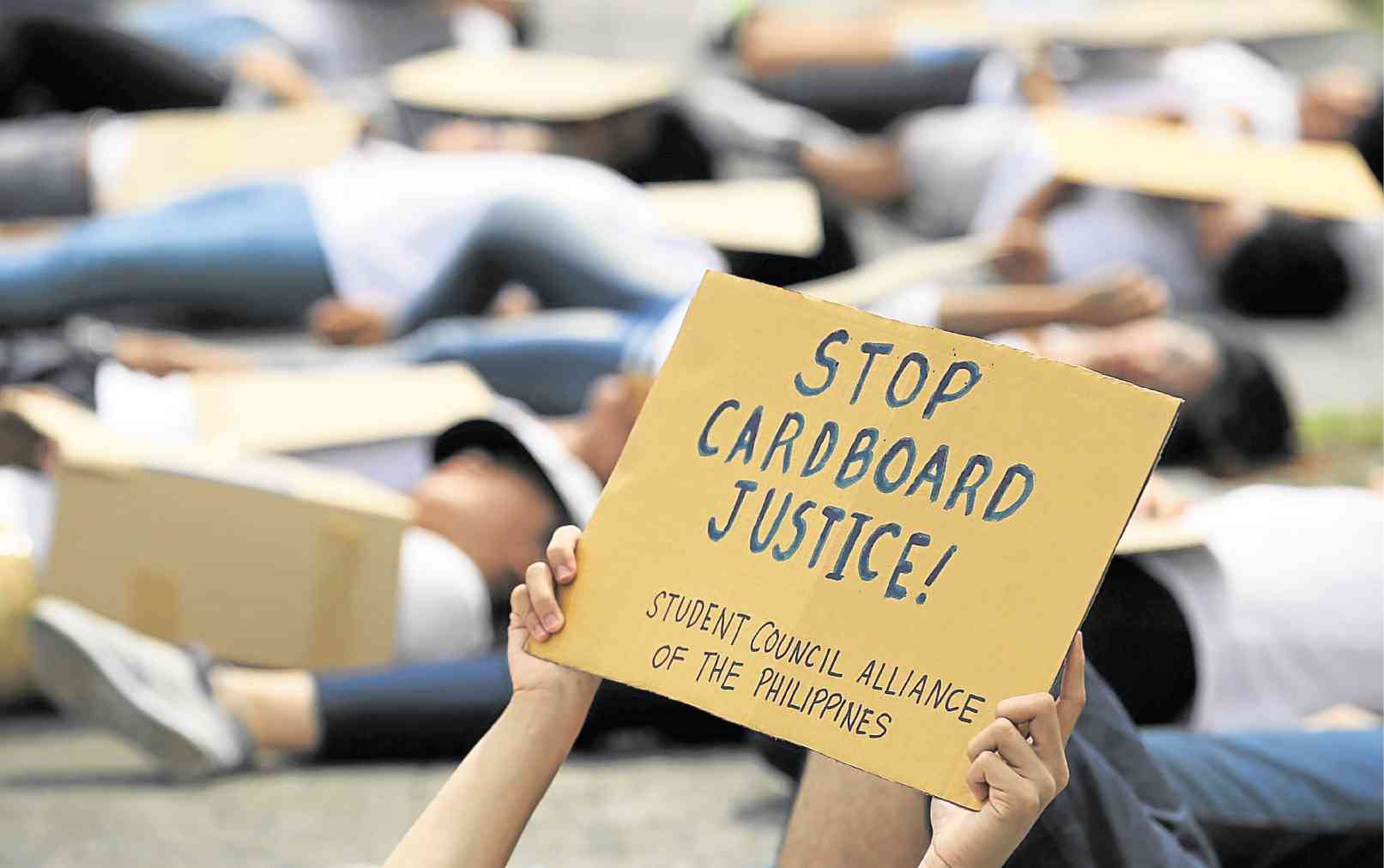
YOUTH leaders imitate victims of “cardboard justice” on Commonwealth Avenue, just meters away from the House of Representatives where the President was to deliver his State of the Nation Address. RAFFY LERMA
A FEW hours before President Duterte delivered his first State of the Nation Address (Sona) on Monday, student leaders called for an end to extrajudicial killings and summary executions in front of the Commission on Human Rights (CHR) office in Quezon City.
Around 20 members of UP Alyansa and the Student Council Alliance of the Philippines (SCAP) lay down on the sidewalk of Commonwealth Avenue, carrying pieces of cardboard bearing the messages “End the Killings,” “Stop Cardboard Justice” and “Batas Hindi Bala (Law, not Bullets).”
“We call on President Duterte to put an end to these extrajudicial killings. Numerous people have been killed in this war on drugs,” said SCAP leader Bea Reyno.
Citing the case of 18-year-old student Julius Rabina in Dagupan City who was killed by motorcycle-riding gunmen who first asked him where his father was, Reyno said young people were being killed without due process.
“To label anybody as a drug peddler is arbitrary, it can only be established by a competent court. And in this culture of violence being perpetuated by authorities, anybody could get killed,” she added.
Illegal and inhumane
“Attaching cardboard labels to the dead bodies of suspected drug personalities as a way of rationalizing their murders is illegal and inhumane,” UP Alyansa’s Leo Rivera said. According to him, “justice is determined by courts, not by cardboards on sidewalks.”
Rivera added that vigilantism was not the proper way to achieve justice, noting that what bothered him the most was that policemen, who should protect the people, “were the ones promoting this sense of justice.”
Reyno noted that the spike in the cases of drug and crime suspects being killed started after Mr. Duterte assumed the presidency.
She recalled that during the campaign period, the President had promised to wipe out drugs and crime within three to six months should he win.
The students observed that the number of summary executions since June 30 has climbed to over 500 with the bodies of many victims dumped on the streets, along with cardboard signs tagging them as criminals.
With the President’s first Sona, Reyno said they expected him to take a strong stance in favor of human rights, especially since he had vowed to act presidential after being sworn in. “Part of being presidential is fighting for human rights,” she added.
At the same time, she expressed disappointment with other rights groups which have remained silent on the issue of extrajudicial killings.
“People should note that we are not only supporting his progressive programs but that we are also fighting measures which are antipoor,” Reyno said, adding that they would take their campaign to other schools in the coming days.
Meanwhile, CHR Chair Jose Luis Gascon, who came out of his office and met with the student leaders, said that the issue could be resolved by respect for the law and other people’s rights.
“We will recommend improvements in the protocol of handling suspected criminals to prevent doubts or allegations of human rights abuses,” he added.
Other possible recommendations were on the transportation of people in detention and the documentation of police operations.